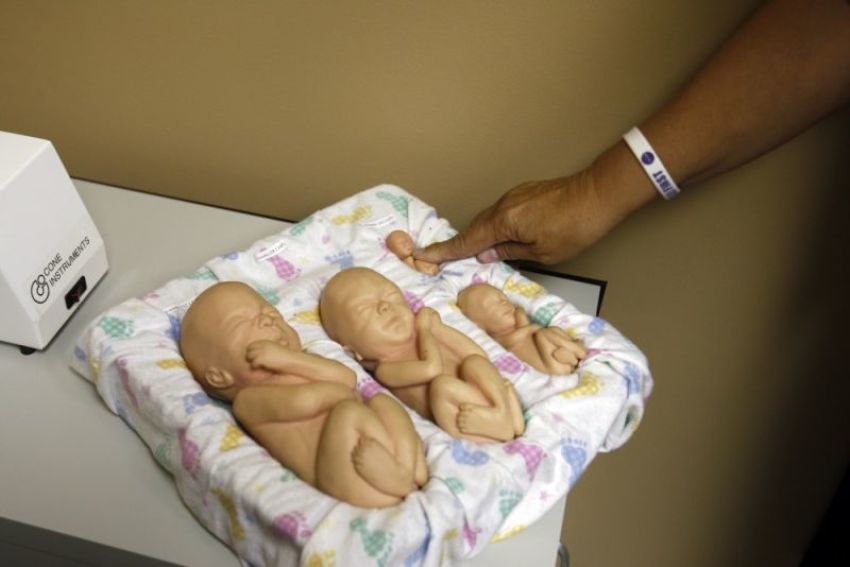South Carolina mulling ban on heartbeat abortions with some exceptions

South Carolina's lawmakers will consider a pair of bills that, if enacted, would ban abortions performed on an unborn baby when a heartbeat is detected, which can be as early as six weeks into a pregnancy.
Two bills were pre-filed last month for the South Carolina General Assembly to consider when they begin their legislative session next Tuesday.
Senate Bill 1, also called the South Carolina Fetal Heartbeat and Protection from Abortion Act, was pre-filed in December and was referred to the Committee on Medical Affairs. The bill prohibits “an abortion on a pregnant woman before a physician determines … whether the human fetus the pregnant woman is carrying has a detectable fetal heartbeat.”
SB 1 bans abortions performed on a fetus with a heartbeat, except when “the physician determines according to standard medical practice that a medical emergency exists.”
Any abortion provider found to be in violation of the bill, if the proposed legislation becomes law, can face a fine of $10,000, a maximum prison sentence of two years, or both.
House Bill 3163, a similar bill also known as the South Carolina Stands for Life Act, was likewise pre-filed in December and then referred to the Committee on Judiciary.
Like the Senate version, the proposed legislation clarified that it is not meant to prohibit the sale or prescription of contraceptive products and that the woman seeking the abortion will not be criminally prosecuted.
Over the past few years, several states have passed similar laws banning abortions when a fetal heartbeat is detectable, only to have measures struck down or blocked in the courts.
Last July, for example, Tennessee Governor Bill Lee signed a heartbeat abortion ban into law, only to have U.S. District Court Judge William Campbell stop it from taking effect.
“The Act will immediately impact patients seeking abortions and imposes criminal sanctions on abortion providers. The time-sensitive nature of the procedure also weighs in favor of injunctive relief pending a preliminary injunction hearing,” wrote Campbell.
In February of last year, a three-judge panel of the U.S. Court of Appeals for the Fifth Circuit unanimously upheld a block on Mississippi’s heartbeat abortion ban, which was passed in 2019.
The panel’s per curiam ruling referenced an earlier legal decision against a different Mississippi law that banned most abortions performed after 15 weeks’ gestation.
“In 2018, Mississippi enacted a law prohibiting abortions, with limited exceptions, after 15 weeks’ gestational age. A district court enjoined the law, and we recently upheld that injunction,” stated the opinion.
“If a ban on abortion after 15 weeks is unconstitutional, then it follows that a ban on abortion at an earlier stage of pregnancy is also unconstitutional.”



























